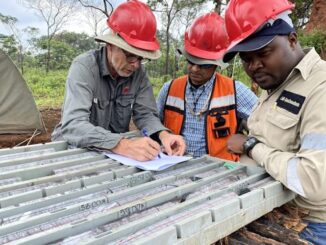
Zambia’s central bank has introduced regulations to strengthen the kwacha and curb dollarization
The Bank of Zambia has drafted new rules aimed at curbing the use of foreign currencies in local transactions, particularly the US dollar, the country’s news agency said on Monday.
The new currency regulations will reportedly be issued as a statutory instrument by the minister of finance and national planning. Once it comes into force, it will require the Zambian kwacha and its subunit, the ngwee, to be used for all domestic public and private transactions.
The central bank has raised concern over the increasing use of the dollar within the local economy. This practice, according to the bank, undermines its monetary policy tools and exerts pressure on the exchange rate.
A draft document released by the Bank of Zambia on Saturday revealed that individuals caught using foreign currency for local transactions could face up to ten years in prison or substantial fines. This was announced by the central bank’s deputy governor for operations, Francis Chipimo, in a speech at a trade fair in Ndola.
Chipimo highlighted the risks of dollarization, stating that it hampers authorities’ ability to effectively manage monetary and exchange rate policies. He explained that use of the dollar raises credit and liquidity risks, and undermines the central bank’s influence as dollar-denominated credit markets do not respond to the Bank of Zambia’s actions.
He further emphasized that in an economy reliant on the US dollar, the demand for and importance of the local currency are reduced, resulting in a persistent decline in its value as both a medium of exchange and a store of value.
“In the extreme, the currency would lose its acceptability as money,” Chipimo stated.
In May 2012, Zambia implemented restrictions on the use of dollars among local businesses, but these measures were abolished less than two years later.
Meanwhile, speaking in an exclusive interview with RT, Stephen Kampyongo, a member of the country’s National Assembly, said Zambia had no need for a US military presence.
In April 2022, Washington announced the launch of AFRICOM’s Office of Security Cooperation at the US embassy in the capital, Lusaka, aimed at improving “military-to-military relations” and expanding areas of cooperation with Zambian security forces.
“It’s not desirable for… the United States… to impose an international request on us,” Kampyongo said in response to a question about whether he believes Washington is trying to impose its policies on Zambia’s government.
“Any international policy must be premised on mutual respect, appreciating the sovereignty of each state,” he added.
Take the Survey at https://survey.energynewsbeat.com/






